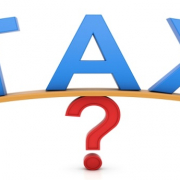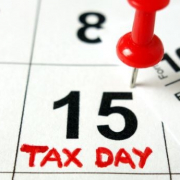When To Worry If Your Tax Refund Is Delayed
After a tumultuous few years of IRS backlogs and last-minute changes to tax laws, tax refunds are generally back on schedule for 2023 returns.
The IRS used some of its $80 billion in funding from the Inflation Reduction Act to hire thousands of new employees and improve its automated systems, which reduced the backlog significantly. But some returns can still take a while to process. If you’re still waiting for your tax refund, here’s what you need to know.
How Long Does It Take To Receive Your Refund?
If you file electronically and choose to have your refund directly deposited into your bank account, you’ll usually get it within 21 days if there aren’t any issues with your return. If you e-file but request a paper check, it usually takes about a month to receive your refund.
That time frame can expand significantly if you file a paper return or if the information on your return doesn’t pass through IRS electronic filters – if, for example, the income you reported doesn’t match up with the W-2s or 1099s the IRS received for you or there are mistakes on your return.
“Anything that requires the IRS to manually look at that return is going to create a delay,” says Melanie Lauridsen, vice president for tax policy and advocacy for the Association of International Certified Professional Accountants.
For example, if you’re claiming an earned income tax credit, your refund will most likely be delayed because the IRS must verify it before issuing the refund.
How to Check the Status of Your Refund
You can use the IRS Where’s My Refund? tool to check the status of your refund within 24 hours of e-filing. If you filed a paper return, you may not be able to check on the status until four weeks after filing.
To check your refund’s status, you need to input your Social Security number, filing status and exact dollar amount of the refund from your tax return. The tool will let you know if your return has been received, approved or sent. The IRS updates the information daily.
Why Is Your Refund Delayed?
Your refund may be delayed for several reasons. In some cases, you’ll just get the money later than expected. In others, the IRS may send you a letter asking for additional information before it can finish processing your return and send your refund.
Remember: The IRS will never call you if it has issues with your return – that’s usually a scam – but will send you a letter instead. If you do receive a letter from the IRS about your return, take action right away.
1. There Are Errors on Your Return
Your refund may be delayed if you made math errors or if you forgot to sign your return or include your Social Security number. It may also be late if your dependents’ information doesn’t match IRS records or if you left out a corresponding schedule or form to support a deduction or credit, Pickering says.
The IRS may correct a small math error and send you a notice of the change. For larger issues, you may need to respond to an IRS request for more information. Also, make sure you answer “yes” or “no” to the question on Page 1 of Form 1040 regarding digital assets.
“Leaving the space blank will delay processing,” said Barbara Weltman, author of J.K. Lasser’s 1001 Deductions & Tax Breaks 2024.
2. Your Reported Income Doesn’t Match IRS Records
When you receive W-2s or 1099s reporting income the IRS gets copies, too. If the numbers you report and the information the IRS receives don’t match up, your refund may be delayed while the IRS figures out how to reconcile the discrepancy.
“If data on your tax return doesn’t match data in the IRS systems, it goes to the error resolution path,” says Mark Steber, chief tax information office for Jackson Hewitt Tax Services. Make sure you don’t leave out any income when you prepare your return, especially if you have several side gigs.
Source: U.S. News & World Report






